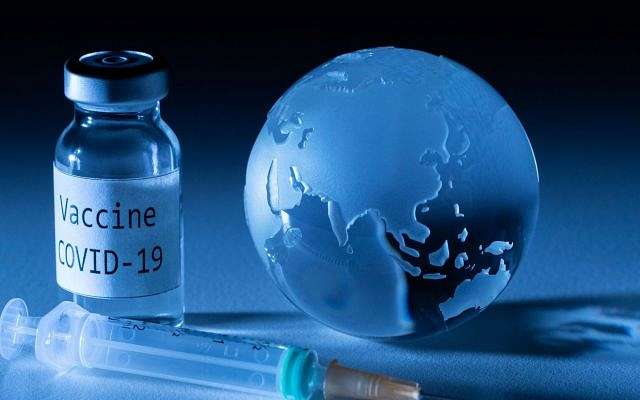Jako pierwszy bezkarność zagwarantował sobie koncern AstraZeneca. W jego ślady chcą pójść także inne firmy. Niepożądane skutki uboczne dla zdrowia i życia przyszłych zaszczepionych na COVID-19 przegrywają z interesem „Big Pharmy”. Podstawowym warunkiem dostarczenia szczepionek na COVID-19 do poszczególnych państw jest uwolnienie firm je produkuj…
#farmakologia #szczepionki #nauka #mafia #biologia #medycyna #eksperymentymedyczne
#farmakologia #szczepionki #nauka #mafia #biologia #medycyna #eksperymentymedyczne


commonsense
3
johny11palcow
0
Populus
Wpis został usunięty przez autora
johny11palcow
0
Populus
1
https://www.berliner-zeitung.de/wirtschaft-verantwortung/corona-impfung-wer-zahlt-fuer-moegliche-schaeden-li.101215
johny11palcow
0
Poniżej wklejam tekst z tłumaczenia z niemieckiego na angielski gdzie możemy przeczytać, że są próby i chęci na to aby pomijać odpowiedzialność producenta, natomiast ani rząd niemiecki, ani Komisja Europejska, ani nikt z Europarlamentu nie zgodził się na żadne z tych żądań firm farmaceutycznych.
Jest prawdą, że firmy naciskają na zwolnienie z odpowiedzialności, a rządy naciskają na jak najszybsze opracowanie bezpiecznej szczepionki, ale co istotne pomiędzy są jeszcze instytucje, których głównym zadaniem jest zapewnienie, że te szczepionki będą bezpieczne. Pozostaje mieć nadzieję, że bezpieczeństwo mimo wszystko pozostanie priorytetem i możemy na to naciskać pisząc maile do wszystkich europarlamentarzystów z każdej partii i z każdego państwa.
"The cost of damage that the Covid-19 vaccination could cause is apparently to be borne by the European taxpayers and not by the pharmaceutical industry. A spokesman for the EU Commission told the Berliner Zeitung: “The preliminary contracts with the companies provide for compensation clauses in the event that a manufacturer is sentenced to pay damages.” The reason for this measure is that “the vaccine manufacturers are racing against time have to produce a vaccine much faster than under normal circumstances ”. The vaccine must be developed in a period of "12 to 18 months instead of a decade or more". The EU therefore sees the need to relieve the manufacturers of the cost risk for claims which, due to the short development time, may be fought in court by patients from pharmaceutical companies. The spokesman: "In order to compensate for such high risks that the manufacturers take, the preliminary contracts provide that the member states compensate the manufacturer for any liabilities under certain conditions."
The pharmaceutical industry has done considerable lobbying in recent months to obtain a general exemption from liability for possible damage caused by the new corona vaccine. The Financial Times reports on a memo from "Vaccines Europe", a division of the European Pharmaceutical Association EFPIA. With regard to the corona vaccine, it states: “The speed and scale of development and adoption mean that it is impossible to generate the same amount of underlying evidence that is normally obtained from extensive clinical studies and experience building Health care providers would be available. ”For this reason, it is unreasonable for the manufacturers to assume liability for the incalculable risk of consequential damage to the vaccine. The association therefore demanded “compensation and civil law indemnification” from the EU and the member states for all damage that the new vaccine could cause.
The pharmaceutical companies have not yet been able to enforce the exemption from liability. According to the commission spokesman, the compensation now provided for in the preliminary contracts does not mean “that we will compromise on the safety of a future vaccine”. The Commission is not ready to change the liability rules.
The EU Commission and a group of four countries - Germany, France, Italy and the Netherlands - are currently negotiating with individual pharmaceutical manufacturers about the purchase of vaccine doses. A first contract was signed with the manufacturer AstraZeneca - under great secrecy and according to information from the Berliner Zeitung at the highest level, partially bypassing the departments.
The European Medicines Agency (EMA) is the counterpart to the US FDA. She makes the final decision on the approval of the new corona vaccine. In an interview with the Berliner Zeitung, Yannis Natsis, one of the two members of the EMA board elected by the patient associations, expresses concern about the negotiations that have so far not been transparent. He said, “There is a staggering level of secrecy in the process of negotiating with the pharmaceutical industry. We need and demand public scrutiny of the negotiations. ”Natsis said the process“ has been accelerated because governments want a vaccine as soon as possible ”. In fact, the public sector is already paying for “research and development, manufacture and distribution of a vaccine that we do not even know about”. It is "unacceptable" that "taxpayers for possible damage" also have to pay.
The patient representative is concerned that the hastily negotiated contract with AstraZeneca could be used as a “blueprint” for all future pharmaceutical contracts in the EU: “We must not create a model solution for industry here. Therefore, the public must know everything about the agreements. "
The EU Commission says that the Corona contracts will not undermine the current EU rules. The commission spokesman: “When looking for a vaccine against Covid-19, all rules of the product liability directive remain in force. Every vaccine that is placed on the market must meet the necessary safety requirements and approval by the European Medicines Agency as part of the EU marketing authorization process. Citizens' rights will continue to be fully protected. Corporations can still be prosecuted. "Claims that the contracts the Commission is negotiating would not respect the Product Liability Directive are false," the spokesman said.
The demand for transparency also comes from the German Medical Association. Their president, Klaus Reinh
TomPo75
3
Nikt nie bedzie odpowiadal -ani rzad, ani lekarze, ktorzy zostali zwolnieni od odpowiedzialnosci.
A skutkow moze byc mnostwo, na co sugeruja oglaszane przetargi w UK (pkt II.1.4)
https://ted.europa.eu/udl?uri=TED:NOTICE:506291-2020:TEXT:EN:HTML&src=0#id1-II.
Kruszec
2